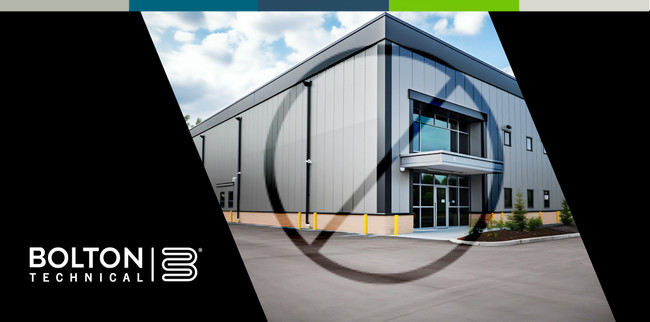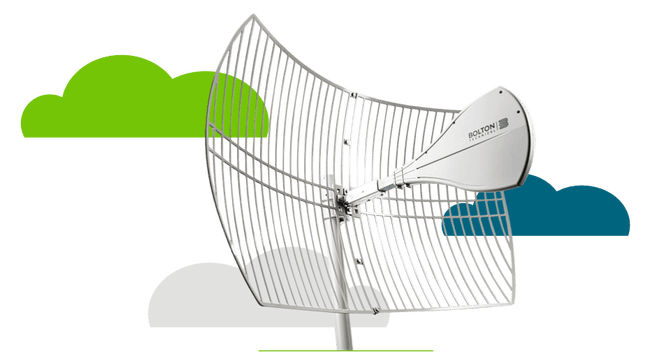
Top 10 Building Materials that Block Cell Service
Building Materials: One of the Primary Causes for Poor Cell Signal Indoors
Ever had to go outside or to a window to make a call? Or have your call drop once you walk inside a building or room? Most of us have. That happens because the building material is interfering with the strength of the cell signal in the area.
There are many reasons why one might suffer from poor cell service, and building materials are near the top of the list, right alongside distance from your nearest cell tower. But not every building material blocks service equally.
Why Can't I Make Calls or Send Texts in a Building?
Your cell phone runs on cellular service. In the United States, this is provided by one of three macro-networks, run by Verizon, T-Mobile, or AT&T. Cell towers in your area send out cellular signal that your phone picks up and connects you to one of these networks. Even if you pay your phone bill to a provider such as Mint, Boost Mobile, Straight Talk, etc, you are still being connected to one of three major macro-networks.
You probably knew most of that. What you might not know is that cellular signals are radio waves, the AM/FM kind. They operate on frequencies both higher (mid-band and millimeter-wave 5G) and lower (low-band 5G, 4G, LTE) than WiFi. You’ve probably experienced the lower WiFi speeds that come from leaving the room where your WiFi router is. This drop is mostly caused by building materials.
Cellular signal is similarly affected. The degree to which building materials block service varies depending on the frequencies your type of service is being broadcast on. Higher frequencies are more easily disrupted than lower frequencies. This is starting to matter more and more in the era of 5G, where high-frequency radio waves are currently the only way to achieve the unbelievable speeds promised by this technology.
Cellular signal is measured in dB, or decibels. We track these decibels through what is called ‘gain’. Gain is measured on a logarithmic scale, meaning: for every –3dB you take away, the signal strength is cut in half. Conversely, if +3dB is added, signal strength doubles.
For the purposes of this article, we will focus on low-band 5G frequencies and the 4G / LTE spectrum, which covers roughly the 600-2700 MHz range. The building materials shown here will also apply to mid-band (1 – 6 GHz) and millimeter-wave (> 24 GHz) 5G bands, just even more acutely.
What Building Materials Block Cell Service?
Let’s get this out of the way first: pretty much everything blocks cell service to some degree. Even the air itself presents the slightest of barriers to these ever-present radio waves.
That said, there are definitely some worse offenders than others. Here are the top 10 building materials that kill cell signal.
10. Drywall (-2 dB)
Most interior walls are made of drywall. These provide limited resistance for cell signal, but if you already live in a weak signal area, it can still cause major issues.
9. Fiberglass Insulation (-2 dB)
Most homes have fiberglass insulation in attics and wall spaces. This insulation provides another barrier to cell signal. Where this gets tricky to calculate is when fiberglass is inevitably paired with another of the materials on this list. If sandwiched between two sheets of drywall, for example, say goodbye to –6 dB of gain for your cell signal.
8. Clear Glass (-4 dB)
Common, single pane glass will knock out –4 dB from your cell service. As building exteriors usually feature one or more of the materials lower on this list paired with fiberglass, this is why sometimes you’re able to make calls when nearer a window. However, this number can add up fast – double pane glass’ll cost you –8 dB.
7. Plywood (-4 dB to –6 dB, depending on thickness)
Another sheet material that kills cell service. Plywood is common in interior construction, and, depending on thickness, can knock a solid 4 to 6 dB from your cell service.
6. Solid Wood (-5 dB to –12 dB, depending on thickness and type)
The oldest, most traditional building material out there, everyone’s been in buildings made of wood. What you might not realize is that wood furnishings and hardwood floors also do their part to weaken your cell service. Any type of wood – oak, maple, pine, mahogany, etc. - will hurt your ability to make calls and receive texts and data.
5. Plaster (-8 dB to –16 dB, depending on thickness)
Plaster is common in offices and homes. Protective, decorative, and common, what makes plaster particularly sinister when it comes to cell service is that you’ll never find it on its own – it's always paired with another material, almost always another on this list.
A single layer of it can cut your signal strength by as much as –16 dB. Yikes.
4. Brick and Stone (-8 dB to –28 dB)
Also known as masonry, brick and stone has been used in buildings for millennia. Aesthetic as well as functional, they unfortunately have a detrimental effect on cell service. While not as damaging as materials lower on this list, it’s usually paired with plaster or drywall, meaning you’re not getting any service anytime soon.
3. Concrete (-10 dB to –20 dB)
The single most common building material in the world is also a real killer of cell service. Ever been in an industrial basement? Concrete in walls, floors, and ceilings act like a tomb, preventing you from getting the service you need.
2. Low-E and Tinted Glass (-24 dB to –40 dB)
Probably the most surprising piece of material on this list, low-e glass has become more common in buildings looking to reduce energy costs and lower their carbon footprint. Unfortunately, that comes at a major cost to your cell service. If your windows are tinted or low-e, you may save on energy, but you won’t be making many calls.
1. Metal (-32 dB to –50 dB)
The single most damaging building material, metal kills cell service, end of story. Aluminum, aluminum foil, lead, brass, copper, steel, iron – all of it annihilates cellular frequency waves. If you’ve got a metal roof and metal walls, or metal insulation, you’re not going to get any service inside. Sorry.
To demonstrate this, a fun little experiment. Get a small amount of tinfoil and wrap your phone inside. Have a friend call it. It’ll go straight to voice mail. Guaranteed.
What Can I Do About Getting Better Cellular Service in My Building?
Fortunately, all is not lost! You won’t have to move or constantly go outside to make calls. All these issues can be solved with a Bolton Technical cell phone signal booster.
A cell phone signal booster captures existing outside signal and rebroadcasts them indoors. They were designed specifically to deal with tricky building material, and as long as you have a sliver of outdoor signal, you’ll get it even stronger indoors.
Here is our top recommendation for buildings:

The Bolton Victory Yagi/Panel Kit Home Cellular Signal Booster
- Boosts Talk, Text and 4G / Low-Band 5G Data
- Covers Up to 4,000 Sq Ft
- Up to 72 dB Gain
- Works with All Cellular Devices and U.S. Carriers
A Bolton Victory is a one time purchase and installation which bypasses the building materials giving your cell service so much trouble. It requires only outdoor cellular signal and a power supply to function, and can be installed in any building, including:
- Barndominiums
- Suburban Homes
- Rural Homes
- Metal Buildings
- Small Offices
- ...and more
Get and Stay Connected Without Change
The Bolton Victory will help you, regardless of the types of material used in your building. Get yours today via Amazon, SignalBoosters.com, or any of our trusted distributors. If you wish to become a distributor of this awesome cellular booster, let us know.
For any questions on how to get better cell service in your building, don’t hesitate to call us at 1-888-987-2658. We’re here to help get you on the road to superior cell signal. To view more of our awesome products, get a free copy of our Bolton Technical Product Catalog.










